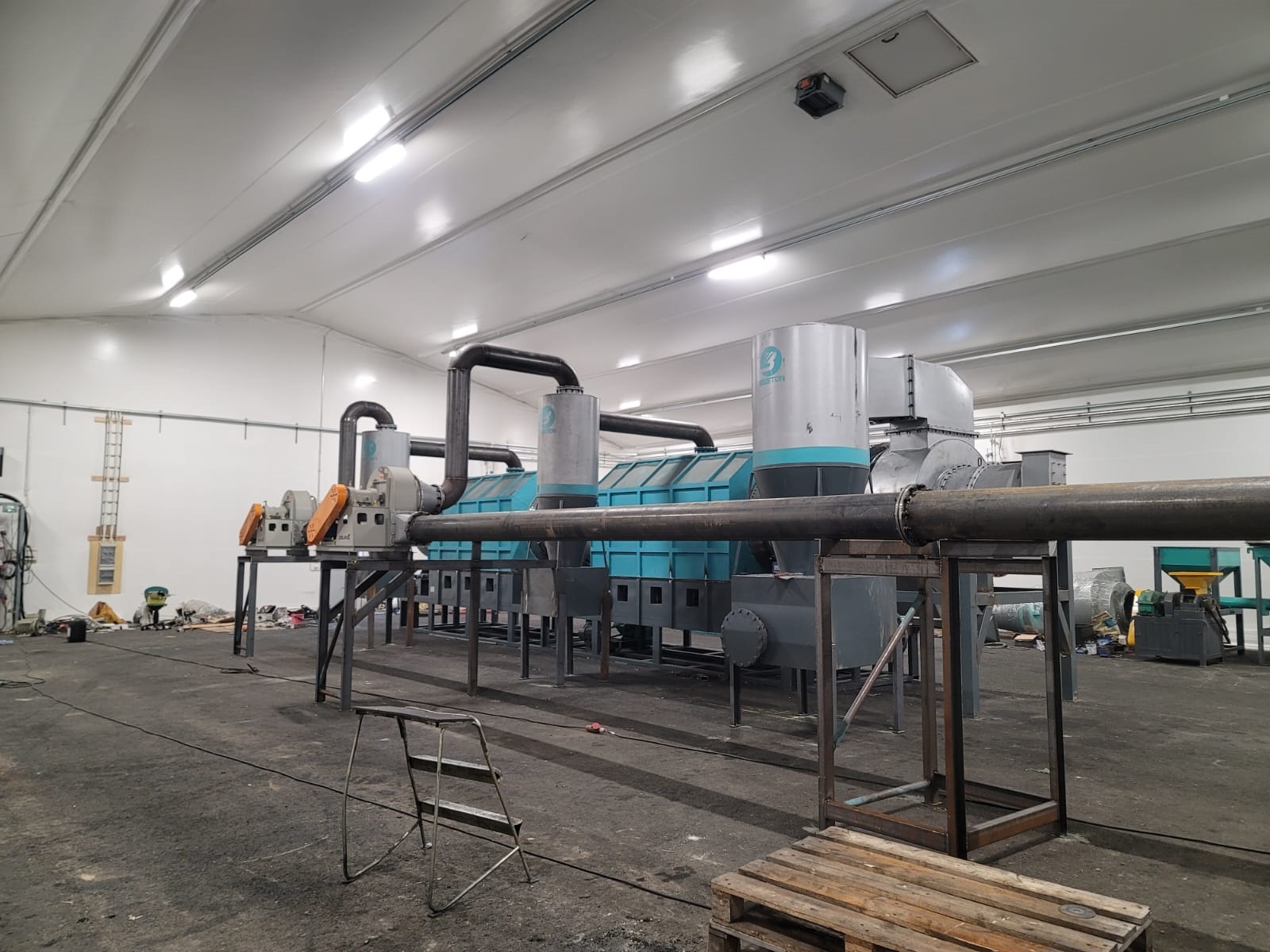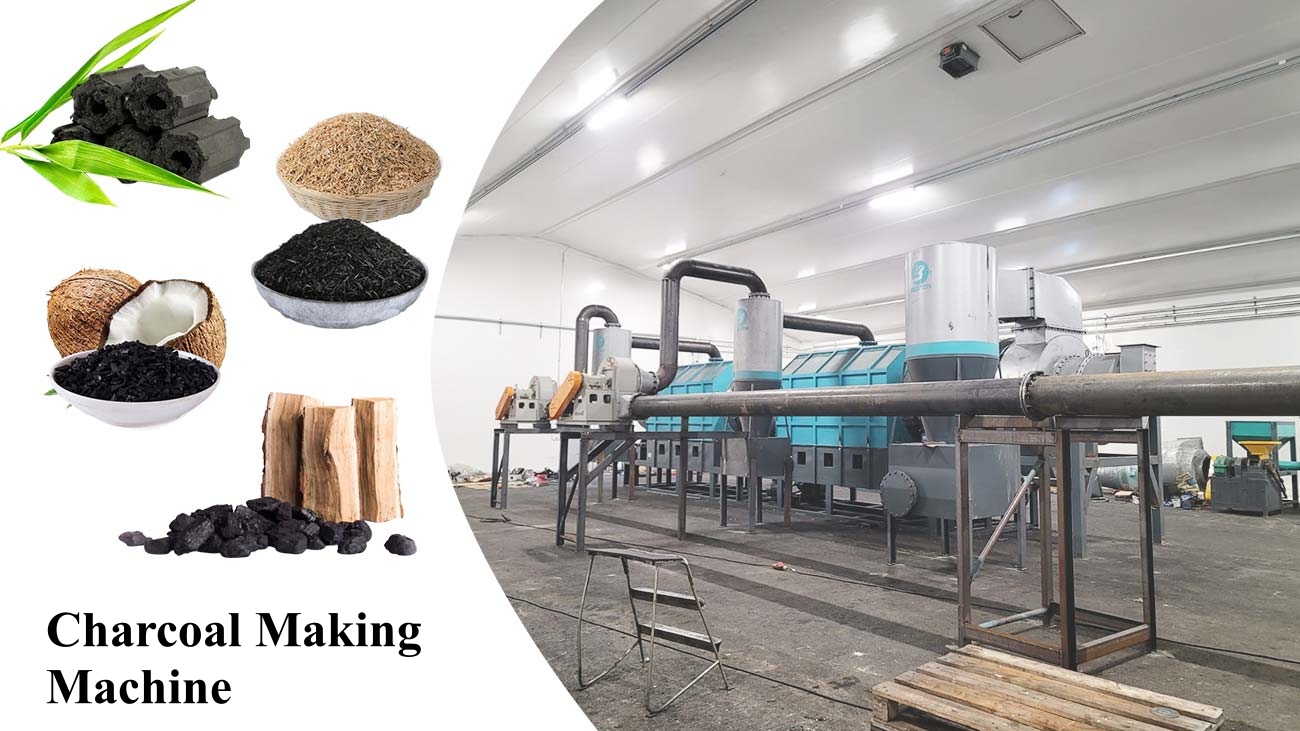In the ever-evolving landscape of sustainable energy solutions, charcoal manufacturing machines stand as a testament to innovation at its finest. These advanced systems herald a new era in the realm of biomass conversion, redefining efficiency and environmental stewardship.
Optimizing Biomass Conversion
Gone are the days of traditional charcoal production methods, laden with inefficiencies and environmental concerns. The advent of modern charcoal manufacturing machine has revolutionized the process, optimizing every stage from feedstock preparation to final product distribution.
Mechanisms of Modern Charcoal Production
At the heart of this technological marvel lies a sophisticated array of mechanisms designed to extract maximum value from biomass resources. These charcoal manufacturing machines employ a combination of pyrolysis, carbonization, and gasification techniques to transform organic matter into high-quality charcoal, with minimal waste and emissions.

Advanced Thermal Decomposition
The journey begins with the careful selection of biomass feedstocks, ranging from agricultural residues to forestry by-products. These raw materials undergo a series of preparatory steps, including shredding, drying, and size reduction, to ensure uniformity and optimal conversion efficiency.
Heat Recovery Systems
Once prepared, the biomass feedstock is introduced into the wood/coconut shell/rice husk/straw/bamboo/sawdust charcoal making machine, where it undergoes a controlled thermal decomposition process. Through the application of heat in an oxygen-limited environment, the organic matter is broken down into volatile gases, bio-oil, and charcoal.
Versatility and Scalability
The efficiency of this process is further enhanced by advanced heat recovery systems, which capture and utilize waste heat to sustain the pyrolysis and carbonization reactions. This integrated approach not only minimizes energy consumption but also reduces the environmental footprint of the charcoal manufacturing machine.
Maximizing Resource Utilization
One of the key advantages of modern charcoal manufacturing machines is their versatility in handling a wide range of feedstocks. From wood chips to crop residues, these systems can efficiently convert diverse biomass sources into valuable charcoal products, catering to the demands of various industries and applications.
By-Product Utilization
Moreover, the modular design of these machines allows for scalability and customization, enabling operators to adapt to fluctuating feedstock availability and marked charcoal manufacturing machines offer flexibility without compromising efficiency.
Integration and Optimization
In addition to charcoal production, these advanced systems also generate valuable by-products such as syngas and bio-oil, which can be utilized for heat and power generation or further processed into biofuels and specialty chemicals. This integrated approach maximizes resource utilization and revenue streams, making wood/rice husk/straw/bamboo/sawdust/coconut shell charcoal making machine economically viable and environmentally sustainable.

The Future of Charcoal Manufacturing
Furthermore, the adoption of cutting-edge automation and control technologies ensures optimal performance and reliability, minimizing downtime and operational costs. Real-time monitoring and data analytics allow operators to fine-tune process parameters and optimize energy efficiency, maximizing the overall productivity of the charcoal manufacturing machine.
As the global demand for renewable energy sources continues to rise, charcoal manufacturing machines emerge as a viable solution to meet the growing needs of both industrial and residential sectors. Their ability to produce clean and sustainable charcoal products, coupled with efficient resource utilization, positions them as a cornerstone of the bioeconomy. For the latest updates and detailed information, be sure to visit Beston Group.